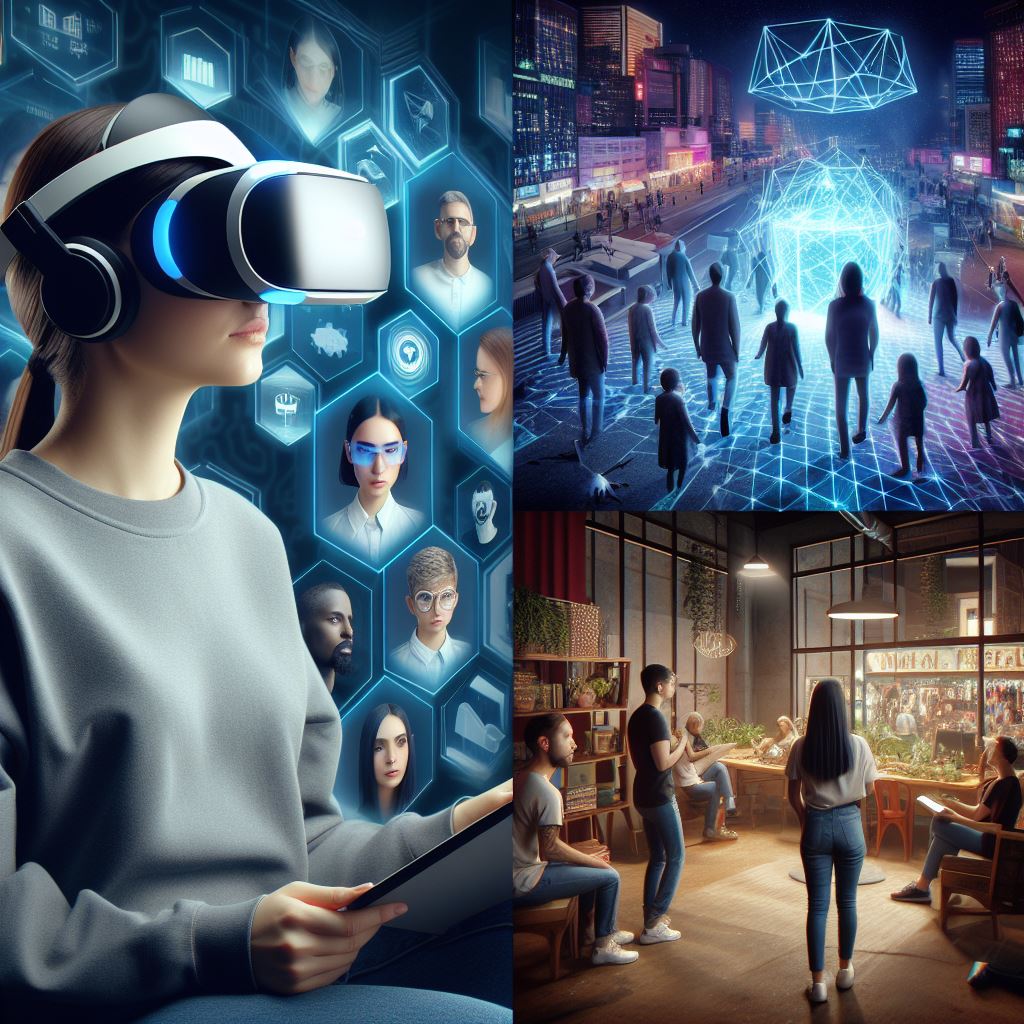The term “metaverse” has permeated our technological landscape, igniting imaginations and sparking discussions about the future of human interaction. But what exactly is the metaverse, and how will it shape our social interactions? This exploration delves into the complexities of this nascent concept, its potential to revolutionize the way we connect, and the ethical considerations that demand our attention.
Demystifying the Metaverse:
The metaverse is not a single, unified virtual world. It’s envisioned as a network of interconnected virtual experiences accessed through various technologies like virtual reality (VR), augmented reality (AR), and mixed reality (MR). Users will be able to create avatars, digital representations of themselves, and interact with others in these virtual spaces, blurring the lines between the physical and digital worlds.
A World of Possibilities:
The metaverse holds the potential to transform the way we interact with each other. Imagine attending virtual concerts with friends across the globe, collaborating with colleagues in shared virtual workspaces, or even visiting virtual museums and historical landmarks. The possibilities for education, entertainment, and social interaction seem boundless.
Reshaping Social Landscapes:
The metaverse could revolutionize social networking by fostering a sense of presence and connection far exceeding current online platforms. Avatars could enable us to express ourselves in new ways, potentially fostering inclusivity and overcoming physical limitations. However, it’s crucial to acknowledge the potential challenges and limitations associated with this transformation.
Ethical Considerations Arise:
The metaverse, in its infancy, presents a plethora of ethical considerations that need to be addressed:
- Data Privacy and Security: The vast amount of personal data collected within the metaverse raises concerns about privacy breaches and misuse. Robust safeguards and regulations are essential to protect user data and ensure responsible data management.
- Accessibility and Inequality: The cost and access to necessary technologies could create digital divides, exacerbating existing social inequalities. Ensuring equitable access to the metaverse is crucial for inclusivity and preventing further marginalization.
- Mental Health and Well-being: Overreliance on virtual experiences could negatively impact mental health and social well-being. Promoting digital health literacy and encouraging a balance between real-world and metaverse interactions are critical.
The Road Ahead:
The metaverse presents a captivating glimpse into the future of human interaction, but it’s vital to approach its development responsibly. By prioritizing ethical considerations, fostering inclusivity, and promoting responsible use, we can navigate the potential pitfalls and ensure the metaverse becomes a force for positive social transformation.
Conclusion:
The metaverse is more than just a technological marvel; it’s a social experiment with profound implications for how we connect and interact. As this technology evolves, open dialogues, ethical frameworks, and responsible development practices are vital to ensure the metaverse becomes a space that empowers, connects, and benefits all of humanity.




